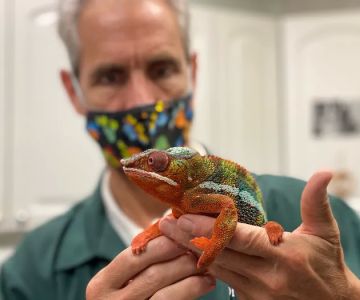What to Feed Pet Guinea Pigs: A Complete Guide to Their Nutrition
- 1. Understanding Guinea Pig Diet
- 2. The Importance of Fiber in Your Guinea Pig’s Diet
- 3. Essential Nutrients for Guinea Pigs
- 4. Foods to Include in Your Guinea Pig’s Diet
- 5. Foods to Avoid Feeding Your Guinea Pig
1. Understanding Guinea Pig Diet
Guinea pigs are herbivores and require a balanced diet to stay healthy and active. Their diet should include a variety of fresh vegetables, high-quality hay, and a small amount of pellets. One of the most important things to keep in mind when feeding guinea pigs is that they need a consistent supply of fiber to support their digestive health. Unlike many other pets, guinea pigs cannot produce vitamin C on their own, so it’s essential to provide them with vitamin C-rich foods.
2. The Importance of Fiber in Your Guinea Pig’s Diet
Fiber is a critical component of a guinea pig’s diet because it aids in digestion and prevents obesity and other health issues. Hay, especially timothy hay, should make up the majority of their diet. It provides essential fiber that helps keep their teeth and digestive system healthy. Without enough fiber, guinea pigs can develop gastrointestinal problems, which can be dangerous.
Types of Hay for Guinea Pigs
Timothy hay is the most commonly recommended hay for guinea pigs because it is rich in fiber and low in calcium. You can also offer other hays like meadow hay, orchard grass, or oat hay. Always make sure that hay is fresh and free from mold to ensure your guinea pig's health.
3. Essential Nutrients for Guinea Pigs
In addition to fiber, guinea pigs require specific nutrients to stay healthy. Some of the most essential nutrients for guinea pigs include:
Vitamin C
Guinea pigs are unable to produce their own vitamin C, so they need a diet rich in this essential nutrient. Without enough vitamin C, guinea pigs can develop scurvy, which leads to symptoms like lethargy, joint pain, and even death. Fresh vegetables like bell peppers, leafy greens, and parsley are excellent sources of vitamin C.
Calcium
While calcium is an important nutrient for guinea pigs, too much calcium can lead to kidney issues or bladder stones. It’s essential to balance their intake of calcium-rich foods like leafy greens (e.g., kale and spinach) and offer them in moderation.
Protein
Guinea pigs require a moderate amount of protein in their diet, which they get from hay, pellets, and vegetables. Protein is crucial for muscle growth and maintaining overall body function. However, their protein needs should not be too high, as excessive protein can cause kidney problems.
4. Foods to Include in Your Guinea Pig’s Diet
Feeding your guinea pig a balanced and varied diet is key to keeping them healthy. Here are some foods to include in your guinea pig’s daily meals:
Hay
As mentioned, hay should be the primary food source for guinea pigs. It provides fiber and helps with dental health. Always make sure your guinea pig has access to fresh hay at all times.
Fresh Vegetables
Fresh vegetables are a crucial source of vitamins and nutrients for guinea pigs. Great options include bell peppers, romaine lettuce, cilantro, carrots, and parsley. Just be sure to avoid iceberg lettuce, which offers little nutritional value.
Pellets
Pellets should be high in fiber and vitamin C. Look for high-quality guinea pig pellets that are free from seeds, nuts, and dried fruits. These ingredients can be too high in fat and sugar, which are not good for guinea pigs.
5. Foods to Avoid Feeding Your Guinea Pig
While guinea pigs can eat a variety of vegetables, some foods are harmful or toxic to them. Be sure to avoid feeding your guinea pig the following:
Fruits with High Sugar Content
Although fruits like apples and strawberries can be given occasionally, fruits that are high in sugar, such as grapes and bananas, should be avoided. Too much sugar can cause digestive issues and obesity in guinea pigs.
Iceberg Lettuce
Iceberg lettuce contains very little nutritional value and can cause diarrhea or digestive issues. Stick to darker leafy greens for better nutritional benefits.
Onions and Garlic
Onions and garlic are toxic to guinea pigs and can cause gastrointestinal distress and even damage their red blood cells. Always ensure that any food you feed your guinea pig is safe and nutritious.
Potatoes and Tomatoes
Although guinea pigs can eat small amounts of tomatoes (without the green parts), potatoes should be avoided altogether. Potatoes contain solanine, a toxin that can be harmful to guinea pigs.
If you’re looking for advice on feeding your guinea pig or need help with other aspects of their care, visit Hidden Brook Veterinary for expert tips and resources to ensure your pet’s health and happiness.










